I think that every overweight person has tried some kind of diet at least once in life. Along with many popular diets, there is a low-calorie kind or a 1000 calorie diet. However, instead of the long-awaited weight loss and harmony (which can really be achieved for a while), it mainly brings dizziness, depressed mood, apathy, decreased performance, and even a lot of troubles that occur with the body. Why is this happening?
Fans of low-calorie diets are convinced that eating only low-fat and low-carb foods will help the body to more intensively use up the energy stored in body fat. At first, this is exactly what happens, but over time, the body begins to restructure and fully adapt to new conditions, which leads to the opposite effect and various health risks.
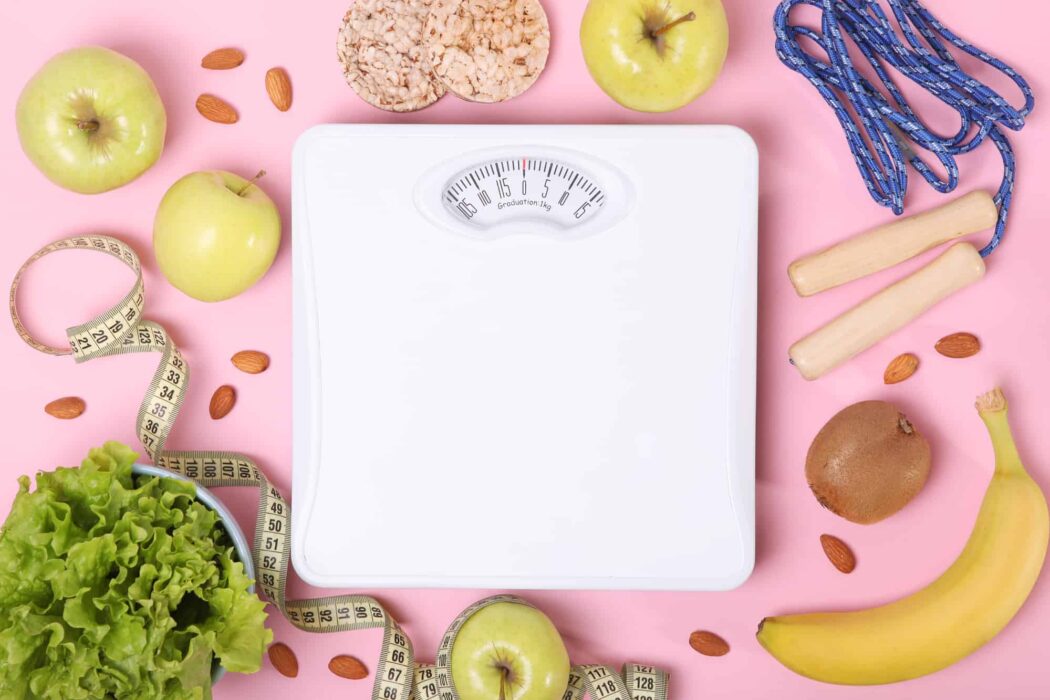
Low-calorie diets are considered the most popular today. They imply a light diet and a complete rejection of nutritional foods containing carbohydrates and fats. In most cases, a person’s maximum number of calories per day with such diets is no more than 1000 units. It is a very small number.
How does the 1000 calorie diet affect your health? Can such a diet help you lose weight and maintain great results? What is the danger of a 1000 calorie diet? In fact, these are difficult questions that require detailed science-based answers. This article will tell you all the details so let’s not waste time and get started!
Is 1000 Calories Enough?
The answer, of course, depends on your weight, height, age, and activity level. Some formulas can calculate the exact number of calories needed to maintain weight, gain mass, or lose weight based on your physiological parameters [1]. It should always be the first step before starting a weight loss program.
The United States government states that the average man needs 2,700 kcal per day and the average woman needs 2,200 kcal per day [2]. This information already suggests that a diet developed for 1000 calories a day is too extreme.
Should I Count Calories on Keto?
Once you’ve calculated how many calories you need to maintain your weight, it’s easy to determine how many calories you need to consume in order to lose weight at a reasonable rate of 1-2 pounds per week. If you want a healthy fat-burning process in your body, then it is better to cut your calories quite a bit by 200-300 kcal per day and add physical activity to your lifestyle. It will also burn an additional 200-300 kcal per day.
In no case should your calorie intake drop below 1400-1500 calories per day. Dropping below this level puts the body in a state of stress and the need to save or store fat mass as a protection in the event of hunger. The global task of every organism is to survive. Not consuming enough calories can slow down your future weight loss and cause health problems.
How Do Low-Calorie Diets Affect Your Body?
It is unlikely that in our time you can meet an absolutely healthy person. For example, people with arterial hypotension due to a lack of calories and carbohydrates in the daily diet may experience severe dizziness, weakness, a decrease in hemoglobin levels, and violations of other blood parameters. For people with diabetes, such diets are also absolutely contraindicated since they need an appropriate full-nutritious diet associated with taking medications.
It applies to all chronic diseases to which almost every second person is exposed. And a sharp decline in the nutritional value of foods only worsens health problems. Let’s take a closer look at the dangers of low-calorie diets.
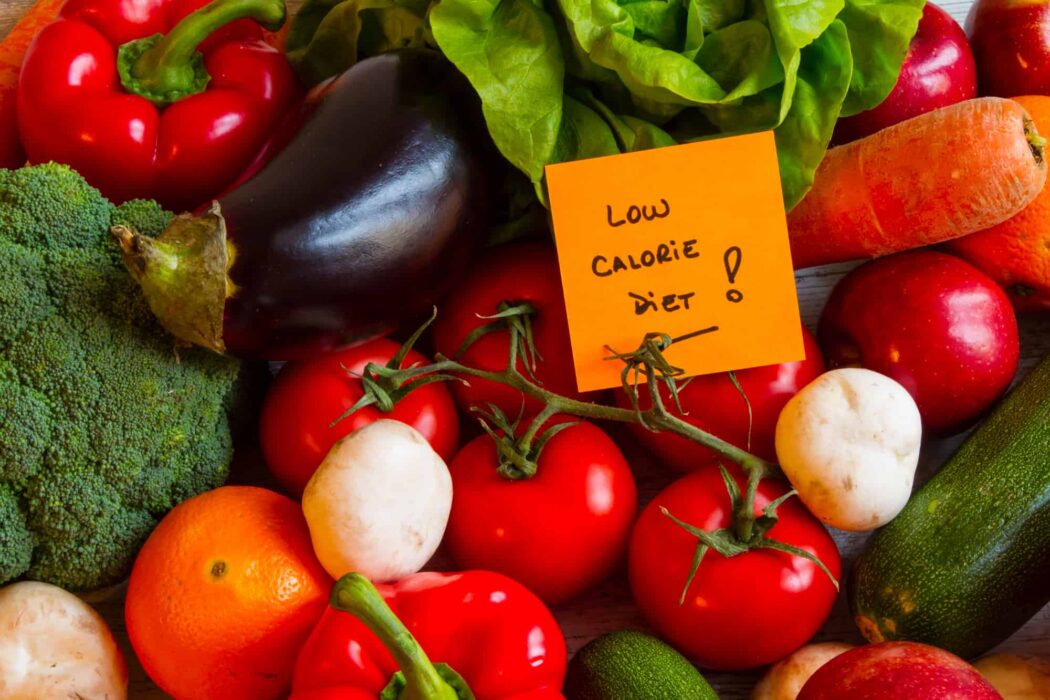
Destroys the Health of Your Gut Microbiome
The human body, mainly the large intestine, is home to trillions of microorganisms. This life inside us is called the intestinal microbiome – it participates in the synthesis of vitamins, protects the body from pathogenic bacteria, stimulates the immune, nervous and endocrine systems, and most importantly, it takes part in the digestive processes. Simply put, your health and well-being depend on it.
The composition of the microbiome for each person is unique and largely depends on nutrition. For example, in lovers of a diet rich in fats and sugars, the number of Bacteroidetes decreases, and the number of Firmicutes increases. The first bacteria prefer vegetable fibers and starch. The second extracts calories from food, leading to weight gain. In general, the microbiome is very plastic and responds to almost all dietary interventions, which means that you need to “feed” your bacteria correctly.
Researchers from Germany and the United States conducted a very strange and interesting experiment [3]. They put 80 overweight women on a low-calorie diet (800 kcal per day) and noticed that the composition of the intestinal microbiome of the participants changed a lot, and not for the better.
Keto and Gut Health: Do You Need Probiotics on High-Fat Diet?
A low-calorie diet increased the number of specific bacteria Clostridioides difficile, which infect the human colon, causing infectious diarrhea and pseudomembranous colitis (acute colon inflammation). According to the researchers, the toxins from these bacteria deprive a person of nutrients, preventing them from being absorbed from the intestines. And here is the most interesting thing: it is partly the reason for losing weight, not due to restricting calories in the diet, mainly fats, and carbohydrates.
Disrupts Metabolism
It is known that a healthy metabolism is a key to losing weight, but a stressful 1000 calorie diet only slows it down, and the weight quickly returns. If a person still manages to cope with hunger, dizziness, and other unpleasant sensations, then the weight is reduced. But it isn’t easy to maintain such a result.
Long-term refusal of nutritious food, balanced in proteins, fats, and carbohydrates, leads to constant emotional stress. Occasional parties and dinners with friends also nudge you into gradually expanding your diet and making it more nutritious. It is an obstacle to maintaining an achieved healthy weight. Even with a slight difference, all calories, except for those required for the low level of metabolism developed during the diet, will be stored as fat.

Impairs the Immune System
Of course, overeating processed food can harm your immune system, but a lack of calories is just as dangerous. If you consciously limit your calorie intake, be prepared for your immune system to fail because you are not supporting it with nutrients.
The fact is that when limiting calories, the process will inevitably affect the fat balance. And along with the loss of “bad” fat, this process will destroy structural lipids, the main task of which is to participate in the creation of new cells and tissues. As a result of this deficiency, the skin appearance worsens, the immune system weakens, and the function of epithelial barriers is disrupted, while blood viscosity and the risk of blood cloth formation increase.
Avoiding healthy fats disrupts growth, blood clotting, and cell renewal. The functioning of the immune system is also significantly impaired. As a result, vitamins, without bringing any benefit, are excreted from the body.
Provokes Nutrient Deficiency
During the 1000 calorie diet, you start eating low amounts of both healthy fats and protein. An unbalanced diet leads to many health problems, and excessive amounts of protein in food can damage the liver and kidneys. For example, the risk of developing type 2 diabetes arises from the excess level of carbohydrates in the food. If you are health conscious, try to balance all nutrients in your diet.
A low-calorie diet is a deficiency of essential elements vital to our body for normal functioning. For example, a decrease in carbohydrates, amino acids, and healthy fats leads to a decrease in the function of the ovaries and adrenal glands, leading to depletion of internal organs and premature aging.
Increases the Risk of Cancer, Heart and Vascular Diseases
When you lose weight too quickly, your liver releases extra cholesterol. It leads to a large amount of cholesterol in the bile, which can provoke the formation of gallstones, complications of cancer, and cardiovascular diseases. In addition, scientists have long established a causal link between prostate cancer and intestines cancer with a low-calorie diet [4].
It turns out that the use of fatty acids can help to resist the appearance of malignant tumors [5]. These acids are found in foods such as vegetable oil, fish, walnuts, almonds, avocados, and seafood.
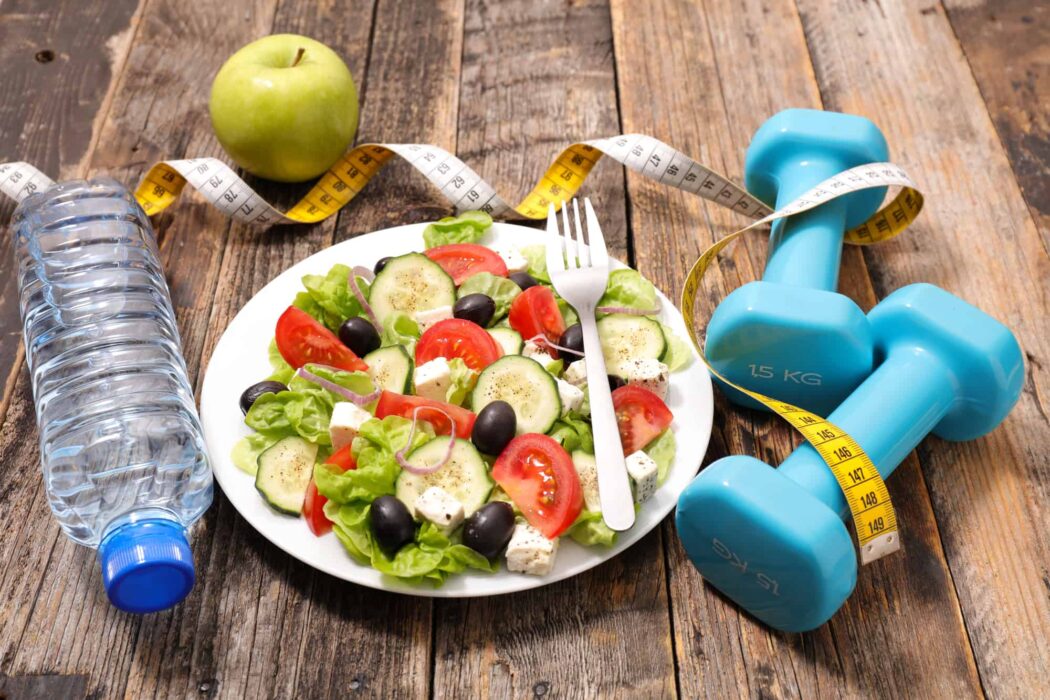
Causes Weakness and Dizziness
Calories are equivalent to energy. When you are malnourished, you feel weak and sleepy. Lack of energy manifests itself in any situation: you can be in the gym or have a business meeting. Without enough calories, you will not have the strength to awaken the body, allow muscles and tissues to recover. If it seems to you that even basic things take a lot of energy, then you should balance your diet.
If you don’t get enough energy from food, you will feel constant fatigue. People who try to lose weight through low-calorie diets and adherents of such a long-term diet are at risk of facing various health problems [6]. Those who constantly eat the same type of food and do not change the menu may suffer from vitamin deficiency, dizziness, changes in blood pressure, and even anemia. Therefore, it’s essential to change your meals so that your body gets a healthy balance of nutrients and converts it into energy correctly.
How to Calculate Net Carbs on Keto? Everything You Need to Know to Do It Right
Other health risks are associated with iron deficiency and decreased immunity due to low protein intake. It can increase the risk of colds and flu and more severe illnesses. Thyroid function can also be affected, as the entire body tries to slow down metabolic processes and adapt to the state of hunger. You may feel weak, sleepy during this approach to losing weight, as well as irritability and depression, which are also associated with a lack of specific vitamins and minerals in the body.
Leads to Lost Periods
Rapid weight loss during a 1000 calorie diet can lead to the above problems and hormonal imbalances, up to a decrease in the level of hormones, especially estrogen.
A severe or prolonged diet leads to hormonal imbalances – the level of stress hormone rises, the level of leptin decreases, followed by the level of sex hormones. In such conditions, the body seeks to survive, not reproduce. Leptin is involved in regulating the reproductive system, and the stronger and longer the calorie deficiency is, the lower the level of this hormone.
Avoiding whole food groups, such as animal protein and dairy foods, and severely restricting fat can lead to menstrual irregularities. Fats are essential for the production of most of the hormones in your body. Animal protein contains iron, while dairy foods are the source of calcium. Women’s needs for these substances are higher than that of men, especially concerning the problems with the reproductive system.
Low body fat and rapid weight loss also provoke hormonal imbalances. It is also worth mentioning leptin, the level of which in the body decreases with weight loss. The consequence of such failures is menstrual disorders and even problems with conception. When periods stop, there is an increased risk of bone loss (and thus fragility of bones) due to lack of estrogen and malnutrition.
Chronic stress during the 1000 calorie diet is one of the main factors in hormonal imbalance. The nervous and endocrine systems regulate immune and reproductive functions. There is ample evidence of how prolonged emotional turmoil has led to menstrual irregularities. Many women in their daily life experience stress of such a level that makes their body postpone the moment of ovulation. The situation is aggravated by a calorie deficiency, exercise, lack of sleep, and neuroses.
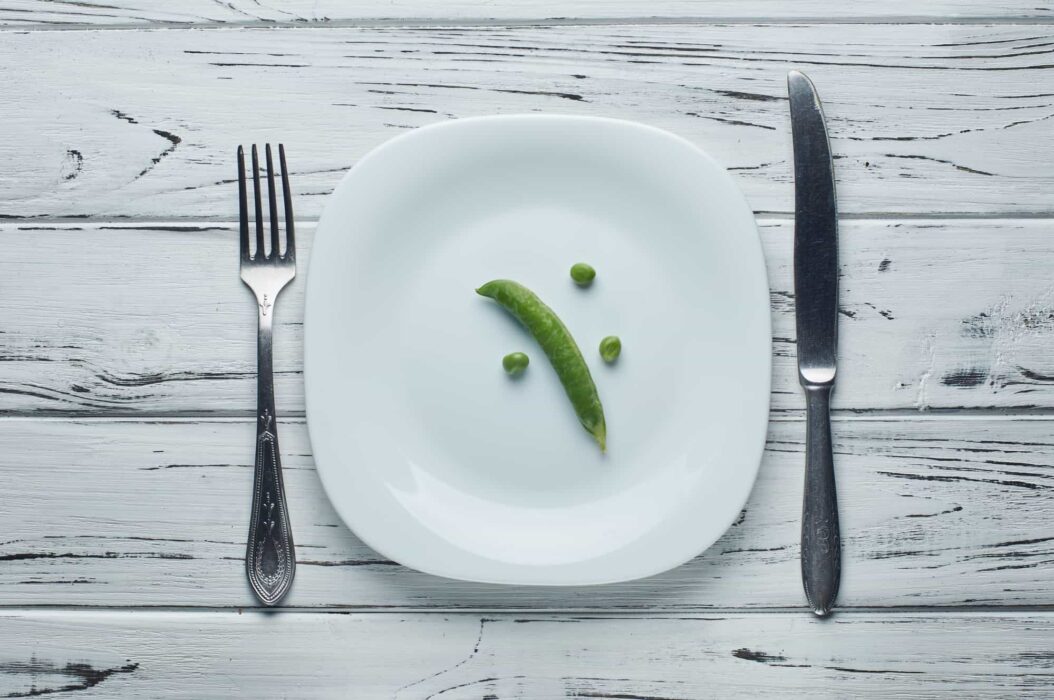
Triggers Greater Weight Gain after Dieting
It is essential to understand that urgently lost pounds come back when you return to your regular nutrition. The ineffectiveness of the 1000 calorie diet is explained by the fact that as the number of calories from food decreases, the body, following the instinct of self-preservation, increases its energy-saving potential. In other words, the fewer calories your body gets, the more greedy it becomes in its energy expenditure.
At the end of the diet, when you start to eat normally again (since it is impossible to be in a state of malnutrition for a long time), the body is forced to convert the surplus of incoming energy into fat reserves since it has already lost the habit of receiving such an amount of food. And then the return of extra pounds is inevitable, often even in greater volume than before the diet.
It should also be noticed that any diet should be completed correctly and gradually, without overeating high-calorie foods. Otherwise, you can definitely get problems with the gastrointestinal tract.
Provokes the Habit of Overeating
If you decide to lose weight and drastically reduce the number of calories consumed, nothing good will come out of it. When the body is low on fuel for energy, it engages in survival mode. Thus, whatever you eat is stored in fat. To prevent this from happening and you do not gain weight, act from the opposite. Eat more often and limit processed food. Thus, you will always be satisfied and full of energy, and the body will be sure of regular food intake, and it will be easier to get rid of fat reserves.
Most people who eat a 1000 calorie diet buy low-fat foods in stores. But there is a dangerous secret here. Although there may be little fat in such foods, they have more than enough sugar to hide those calories [7]. As a result, about half an hour after eating low-fat food, the body will be hungry again. People who want to lose weight often overeat such foods, thinking that they will not harm the body. However, the lack of healthy fats on your menu leads to various health problems, including mental health.

Degrades Mental Health
Fatty acids affect your mental state. With a low-calorie diet, their intake into the body is significantly reduced, resulting in the interaction of nerve cells being disrupted. Ultimately, this leads to depression, attention deficit disorder, and other mental health disorders [8].
The vast majority of overweight people find it challenging to tolerate low-calorie diets that reduce the number of carbohydrates and fats. They experience a constant feeling of hunger and dizziness, forcing them to interrupt the started weight loss. It gives rise to a feeling of dissatisfaction, fear, and doubt in achieving a positive result. As a result, you can experience anxiety, stress, and an uncomfortable state of mind. Then, we often need to relieve stress and please ourselves by increasing the volume of food and changing its quality due to sweet, carbohydrate foods.
Unreasonable aggression is also caused by low blood sugar. Carbohydrates, proteins, and fats are broken down into simple sugars, amino acids, and free fatty acids. These nutrients enter the bloodstream, from where they are distributed to organs and tissues. They are essential for getting energy. The amount of nutrients in the blood begins to decrease in 2-3 hours after eating. If your blood glucose level drops dramatically, your brain will perceive it as a life-threatening situation.
Food Craving List: Reasons and Healthy Alternatives
Pampering yourself is part of a happy life, and there is nothing wrong with that. It is important for your mental health and logical thinking. If you choose to eat only cucumbers and celery, it’s no surprise that you will want to eat a whole cake one day (or two, who knows.) Make sure your body is getting enough balanced nutrition. Food for psychological pleasure should also be included in your menu. Choose a day when you can eat your favorite food, and don’t judge yourself for it.
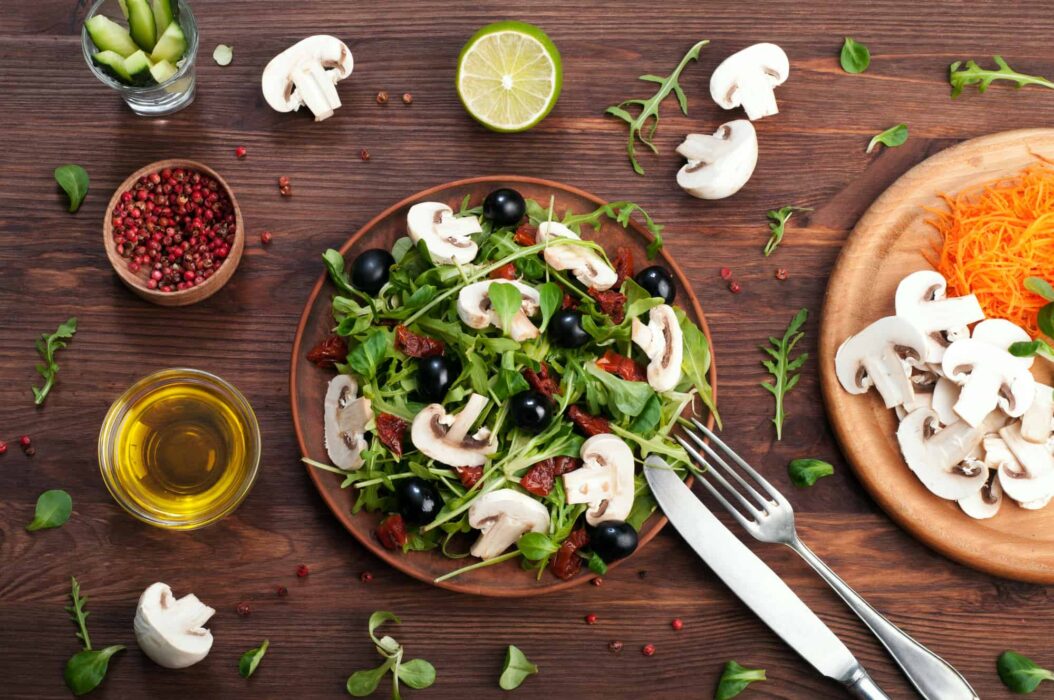
What Is A Healthy Diet?
Healthy weight loss doesn’t happen overnight, and that’s okay, as your body takes time to adjust to a new diet. If you are losing 1-2 pounds a week, then you are on the right track. Besides, not every diet is universal, and you should choose a meal plan that suits your lifestyle, body type, age, and weight.
However, all healthy diets, whether high-carb or low-carb, have common qualities that are imperative. First of all, it is the balance of nutrients and the presence of vitamins in your diet. Your body needs to get enough healthy fats, quality protein, fiber, and complex carbohydrates if you choose a high-carb diet. At the same time, you should limit your intake of high-carb foods, sugar, and trans fats during any healthy nutrition plan [9].
Choose high-thermic foods, vegetables, healthy animal protein, try intermittent fasting, and you will soon see good results. However, remember that each person is unique. You should consult with a dietitian to research your metabolism and find the right diet.
Conclusion
The main danger that lies in wait for people who want to lose extra pounds quickly is an acute shortage of essential vitamins and minerals. It contributes to the development of vitamin deficiencies. As a result, nails and hair lose their natural shine and eventually become brittle. In addition, the lack of a full and balanced diet leads to disturbances in the work of the cardiovascular system, and in especially critical situations, iron deficiency anemia can develop.
Replacing fats and carbohydrates with proteins alone negatively affects the functioning of the kidneys. The increased content of proteins in the body contributes to the acidification of urine and the abundant excretion of salts. These uncontrolled processes can lead to the formation of kidney stones and genitourinary system disorders. In addition, on a 1000 calorie diet, your blood cholesterol levels rise sharply, increasing your risk of stroke or heart attack. Just stop and think for a while. Do you need all these problems?
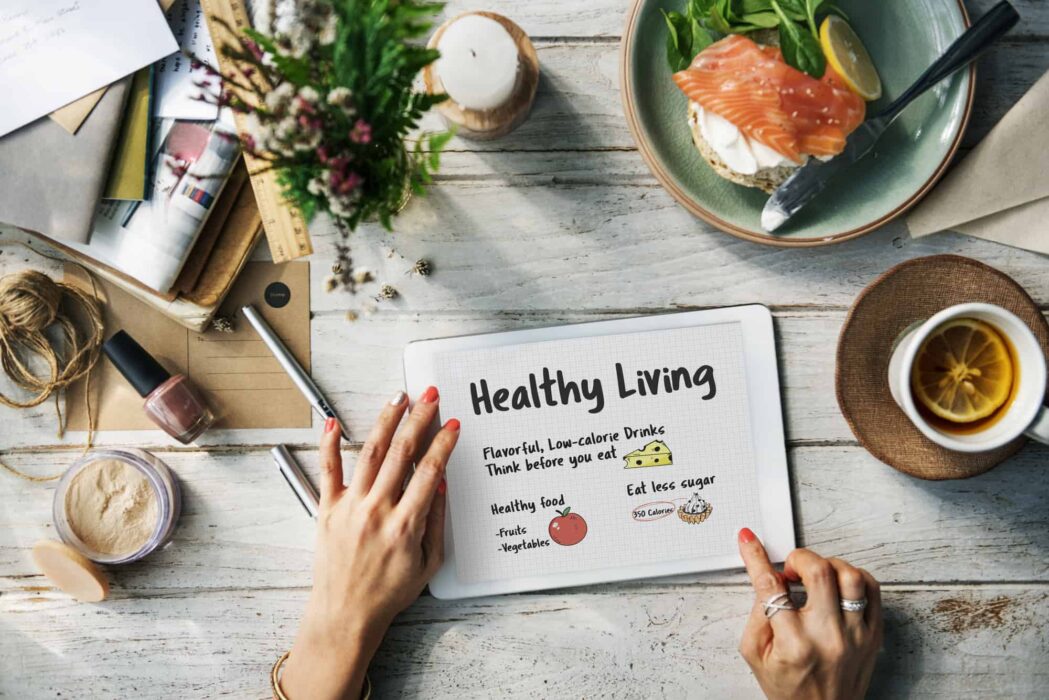
What’s the best way to lose weight? By far, the safest and most effective approach is a healthy diet and moderate physical activity. But some people want quick results and resort to unsafe practices like crash diets or unhealthy restrictions in daily calories. Both approach don’t work in the long run, and both can have serious health consequences.
So be wise, don’t harm your body with calorie deficiency, and have good luck with your weight loss!
Sources:
- Calorie Calculator. Use the calorie calculator to estimate the number of daily calories your body needs to maintain your current weight. https://www.mayoclinic.org/healthy-lifestyle/weight-loss/in-depth/calorie-calculator/itt-20402304.
- How many calories do you need? https://www.medicalnewstoday.com/articles/263028
- Charité – Universitätsmedizin Berlin. (2021, June 23). Dieting and its effect on the gut microbiome: Bacterium associated with antibiotic-induced colitis plays a role in weight control. ScienceDaily. Retrieved December 21, 2021 from www.sciencedaily.com/releases/2021/06/210623141657.htm
- Poor diet and cancer risk. https://www.wcrf-uk.org/preventing-cancer/what-can-increase-your-risk-of-cancer/poor-diet-and-cancer-risk/
- Key TJ, Bradbury KE, Perez-Cornago A, Sinha R, Tsilidis KK, Tsugane S. Diet, nutrition, and cancer risk: what do we know and what is the way forward? [published correction appears in BMJ. 2020 Mar 11;368:m996]. BMJ. 2020;368:m511. Published 2020 Mar 5. (doi:10.1136/bmj.m511)
- Fanelli SM, Jonnalagadda SS, Pisegna JL, Kelly OJ, Krok-Schoen JL, Taylor CA. Poorer Diet Quality Observed Among US Adults With a Greater Number of Clinical Chronic Disease Risk Factors. J Prim Care Community Health. 2020;11:2150132720945898. (doi:10.1177/2150132720945898)
- Livingstone KM, McNaughton SA. Diet quality is associated with obesity and hypertension in Australian adults: a cross sectional study. BMC Public Health. 2016;16(1):1037. Published 2016 Oct 1. (doi:10.1186/s12889-016-3714-5)
- Saunders J, Smith T. Malnutrition: causes and consequences. Clin Med (Lond). 2010;10(6):624-627. (doi:10.7861/clinmedicine.10-6-624)
- Cena H, Calder PC. Defining a Healthy Diet: Evidence for The Role of Contemporary Dietary Patterns in Health and Disease. Nutrients. 2020;12(2):334. Published 2020 Jan 27. (doi:10.3390/nu12020334)